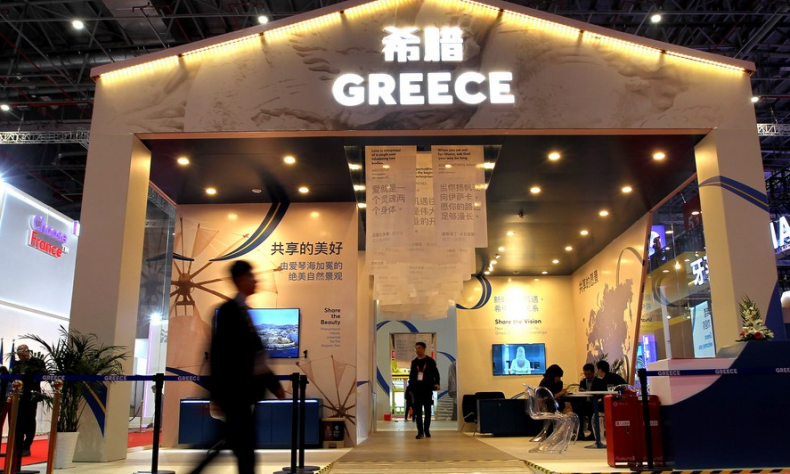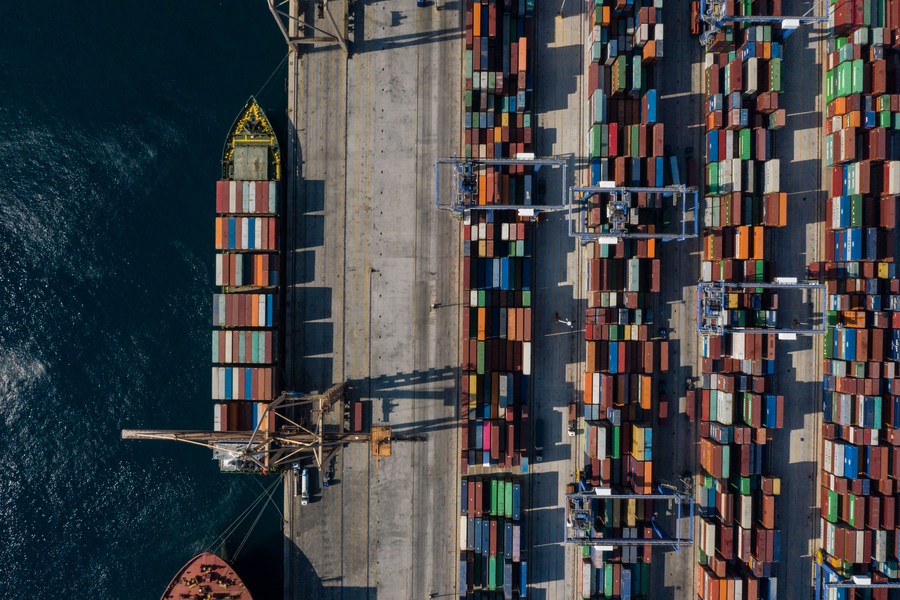A Diachronic Relationship

China and Greece are making plans for a harmonious return to normalcy after more than two years of serious disruption caused by COVID-19.
China and Greece are celebrating the 50th anniversary of their diplomatic relations. Although the year 1972 certainly marked a turning point in the bilateral relationship, evidence of cooperation dates back to ancient times. The ancient Greeks were aware of the existence of China and had given the name sericulture to the cultivation of silk worms.
As two ancient civilizations, China and Greece had already shared an element of mutual respect even before 1972. Mutual respect has subsequently been critical in the evolution of their relations in the 50 years that has followed. It is always intellectually stimulating for the two sides to journey back to history, dig into the past and look for cultural similarities in the works of ancient philosophers and theorists.
Obviously, current Sino-Greek relations are not only characterized by nostalgia for the ancient era, but also by economic cooperation. The emblematic investment of COSCO Shipping in the Port of Piraeus since 2009 has been the flagship project in the Chinese economic presence in Greece. This port facilitates trade interconnectivity between the East and the West and functions as a significant hub in the implementation of the Belt and Road Initiative.
The transformation of the port by COSCO Shipping cannot be easily put into words. Although the rise in the volume of shipping containers handled throughout the years is telling, the difference is better demonstrated by visitors to the location before and after 2009. A relatively small port has gradually become a trade center where vessels are continuously docking, cranes are uninterruptedly operating, and new construction works are being carried out.

COSCO Shipping and Greek authorities are in constant negotiations to ensure that the proposed overhaul of the port by the former will be in line with environmental standards, a highly significant European priority. Furthermore, the much-anticipated end of the pandemic is expected to give a boost to the Chinese company’s ambition to invest in cruise terminals, allowing Greece to host an increasing number of cruise passengers, who will have the option of embarking and disembarking at Piraeus.
In her congratulatory message to Chinese President Xi Jinping on June 5 on the 50th anniversary of diplomatic ties, Greek President Katerina Sakellaropoulou expressed confidence that both sides will continue to join hands to promote dialogue between different civilizations and safeguard world peace.
Opportunities for collaboration exist beyond the Port of Piraeus. Greece is in the process of stabilizing its national economy following a decade of crisis, while the consequences of the COVID-19 pandemic are still being felt. Its objective is therefore to make investments from foreign countries contribute to GDP to a larger degree.
Over the last 10 years, Greek statistics show China was the sixth biggest investor in the country. Bilateral synergies in the field of green energy could be an area in which both sides can work together in the future. Trikala, a Greek city, is already using electric buses made by Chinese automaker BYD. Other deals have been inked in the sphere of technology. The Greek Post already employs China-made mail sorting robots.
Above all, China and Greece are making plans for a harmonious return to normalcy after more than two years of serious disruption caused by COVID-19. In mid-March, they signed a joint action plan in the tourism sector. Its much-expected implementation will bring Sino-Greek relations back on track with physical people-to-people exchanges, a crucial ingredient not only for economic ties but also for mutual understanding.
The author is EU-China Program director at the Centre International de Formation Européenne.
 Facebook
Facebook
 Twitter
Twitter
 Linkedin
Linkedin
 Google +
Google +










